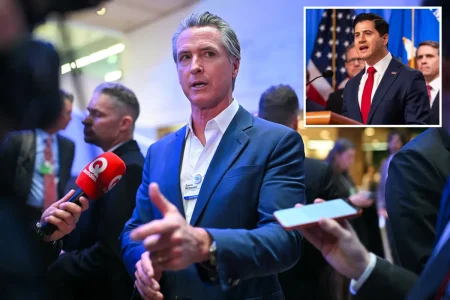Trump Challenges Global Order in Fiery United Nations Address
President’s America-First Vision Confronts International Institutions
In a characteristically bold address to the United Nations General Assembly, President Donald Trump delivered a clear message to world leaders that placed American sovereignty at the forefront of his foreign policy vision. The speech, which echoed campaign themes that first propelled him to the White House, represented one of the most direct challenges to the international order from an American president in recent memory. Trump’s remarks laid bare his administration’s skepticism toward multilateral institutions and global governance, instead championing a world order built around strong, independent nation-states.
“America is governed by Americans,” Trump declared to the assembled diplomats and heads of state in the packed UN chamber. “We reject the ideology of globalism and embrace the doctrine of patriotism.” This stark framing established the central thesis of his address – that the United States would no longer subordinate its interests to international bodies or agreements it views as constraining American sovereignty. The President’s remarks reflected his administration’s consistent approach to foreign affairs, one that has upended decades of bipartisan consensus on America’s role in sustaining the post-World War II international system. Throughout his speech, Trump highlighted his administration’s withdrawal from the Iran nuclear deal, the Paris climate accord, and the UN Human Rights Council as examples of putting American interests first – moves that have alarmed traditional allies while energizing his domestic political base.
Economic Nationalism Takes Center Stage
President Trump devoted significant attention to what he characterized as unfair economic relationships between the United States and both allies and adversaries. “We will no longer tolerate such abuse,” Trump stated, referring to trade practices he views as disadvantageous to American workers. The President highlighted his administration’s imposition of tariffs on over $250 billion of Chinese goods, framing these economic measures as necessary correctives to decades of trade imbalances. His unapologetic defense of protectionist policies stood in stark contrast to the free-trade orthodoxy that has dominated American foreign policy since the end of the Cold War. Economic analysts note that while Trump’s tariff strategy has resonated with his core supporters, particularly in manufacturing regions, it has created uncertainty in global markets and raised concerns about potential retaliatory measures from trading partners.
The President’s economic nationalism extended beyond trade to encompass foreign aid and defense spending. Trump emphasized that his administration would reconsider America’s generosity toward nations that fail to advance American interests. “Moving forward, we are only going to give foreign aid to those who respect us and, frankly, are our friends,” the President stated, signaling a transactional approach to international assistance. Similarly, he criticized NATO allies for failing to meet defense spending commitments, a familiar theme in his addresses both domestic and international. This focus on reciprocity in international relations underscores the administration’s view that previous administrations allowed the United States to be exploited by both allies and adversaries – a perspective that has fundamentally altered America’s diplomatic posture under Trump’s leadership.
Sovereignty as Governing Principle
The concept of national sovereignty emerged as the philosophical cornerstone of Trump’s vision for international relations. “Around the world, responsible nations must defend against threats to sovereignty not just from global governance, but also from other, new forms of coercion and domination,” Trump told the assembly. This emphasis on sovereignty reflects a profound skepticism toward international institutions and multilateral agreements that the President views as encroachments on American self-determination. International relations experts note that while previous administrations have always balanced sovereignty concerns with international commitments, Trump’s approach represents a more fundamental challenge to the post-World War II consensus that saw American leadership as essential to building and maintaining global institutions.
This sovereignty-focused worldview manifested in Trump’s discussion of immigration, which he framed not merely as a domestic policy issue but as fundamental to national identity and security. “Ultimately, the only long-term solution to the migration crisis is to help people build more hopeful futures in their home countries,” Trump stated, rejecting what he characterized as “global governance” approaches to migration. The President’s emphasis on border security and national control over immigration policy aligns with similar movements in Europe, where right-leaning parties have gained strength partly by advocating stronger national borders against regional integration. By elevating these sovereignty concerns to the forefront of his foreign policy vision, Trump has aligned himself with a growing international movement skeptical of globalization and transnational governance.
Confronting Adversaries While Redefining Alliances
President Trump’s address contained sharp criticism of adversaries including Iran, which he accused of sowing “chaos, death, and destruction” across the Middle East. The President defended his decision to withdraw from the Iran nuclear agreement, describing it as a “horrible, one-sided deal” that failed to address Iran’s broader destabilizing activities in the region. This confrontational approach toward Tehran highlights the administration’s willingness to discard diplomatic achievements of previous administrations when they fail to align with current priorities. Similarly, Trump criticized Venezuela’s government, describing socialism as having produced “poverty and misery everywhere it has been tried,” while also condemning Syria’s Bashar al-Assad for “barbarism” against his own people.
Yet even as Trump outlined clear positions against adversaries, his vision implied a redefinition of America’s traditional alliances. By consistently emphasizing that nations should prioritize their own interests above all else, the President implicitly challenged the notion that shared values or collective security arrangements should guide international cooperation. “We must protect our sovereignty and our cherished independence above all,” Trump stated in a line that could as easily apply to America’s allies as to the United States itself. This perspective represents a significant departure from previous administrations that emphasized shared democratic values and mutual defense commitments as the foundation of American alliances. Foreign policy experts note that this shift has created uncertainty among longtime allies about America’s reliability as a partner in addressing global challenges from climate change to terrorism.
The Future of American Leadership
As President Trump concluded his address, the implications of his America First vision for the future of global leadership became apparent. By rejecting what he termed “global governance, control, and domination,” Trump has positioned the United States not as the primary architect and guarantor of the international order, but as one sovereign nation among many, each pursuing its own interests. This approach marks a profound shift from the internationalist consensus that has guided American foreign policy since World War II, raising questions about who will fill potential leadership vacuums on the world stage. While the President emphasized that “America will always choose independence and cooperation over global governance, control, and domination,” critics worry that diminished American engagement in international institutions may create opportunities for rivals like China and Russia to expand their influence.
The President’s vision reflects not just his own worldview but broader currents in American politics, where skepticism toward international commitments has grown on both the political right and left. For supporters, Trump’s approach represents a long-overdue reassertion of American sovereignty and interests after decades of policies they view as prioritizing global concerns over domestic well-being. For critics, the speech signals a dangerous retreat from the leadership role that has historically allowed America to shape global norms and institutions to reflect democratic values. As world leaders departed the General Assembly, they faced the reality that regardless of domestic political developments in the United States, Trump’s presidency has fundamentally challenged assumptions about America’s role in the world order it largely created. Whether this represents a temporary deviation or a more permanent realignment in American foreign policy remains one of the central questions in international relations today.









